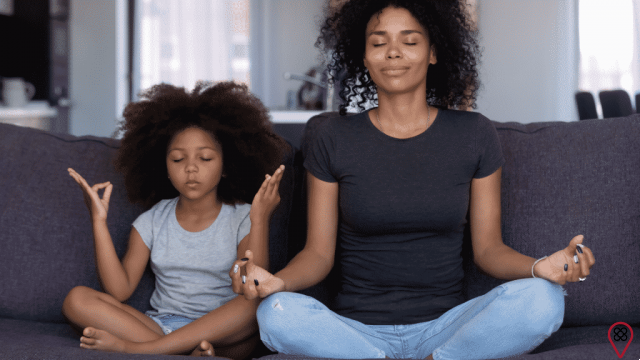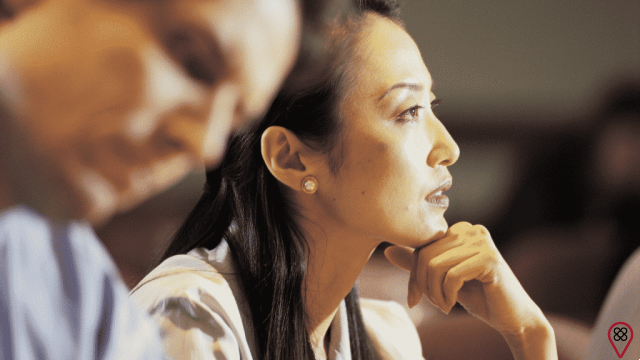In these times of pandemic caused by COVID-19, people have constantly kept their minds occupied by worries, insecurities and tensions because of this virus that still surrounds us; also because of the magnitude with which it affected aspects of mental health in many close people.
The routine had to be changed, isolating as much as possible, not being able to leave the house in the last year, which in many people, regardless of age, caused an increase in stress, depression, anxiety and other ailments.
Staying at home every day was not the best option for everyone, if you think about the dysfunctional dynamics with which human relationships are integrated in the home. Therefore, many psychologists who have even treated thousands of these people have chosen to help their patients with some mindfulness practices to help reduce anxiety, anger, stress and exhaustion.
What is mindfulness?
Mindfulness (also known as “presence” or “mindfulness”) is a state of attention that derives from the ability of human beings to be fully present and that allows one to be aware and only observe thoughts, emotions, beliefs, meanings, attitudes and results. of mind.

It is a practice that can be cultivated and consists of being fully aware of the here and now, accepting what is being experienced and felt, trying to be free from worries, anticipations and without making interpretations or judgments.
The practice of mindfulness combines meditation and self-awareness. The more aware the person is, the less feeling of discomfort they will have and the less reactive they will act to situations.
This state of awareness can be achieved with controlled breathing and a posture in which the spine is comfortably upright, focusing on the sensations of the body and mind.
This type of meditation has Hindu and Buddhist origins, which became popular in the West thanks to the American doctor Jon Kabat-Zinn, who integrated the practice into cognitive psychology, which studies how human beings understand the world.
Exercises practiced with awareness help to reduce stress, anxiety, anger and depression, as they help to observe, accept and be at peace with emotions and thoughts, relieving much of the suffering of everyday life that impacts relationships between one another. and others.
In addition to helping to reduce stress, anger, depression and anxiety, mindfulness can also benefit other aspects of health. For example, it can be used as a therapy for cardiovascular health care, as its practice can reduce the risk of a heart attack by almost 50%.
How does mindfulness help reduce stress and anxiety?
Anxiety and stress are feelings that produce physical and emotional tension and are derived from situations or thoughts that sometimes make the individual feel nervous, angry, afraid or frustrated. They are reactions to how the body and mind have learned to face a challenge or a greater demand on energy from the mind or body.

When the mind focuses on the past, “ruminating” on situations, dialogues and attempts at solutions, feelings of guilt, frustration and regret are generated that do not allow us to function in the present in a clear and assertive way. In addition, spending so much energy thinking about the future with uncertainty generates constant worry, fear, anguish, stress and / or anxiety. Both ways of dealing with the situation must be worked out differently, with greater stability, with assertive decision-making and with the generation of pleasure in the present.
Mindfulness is focused on learning what happens, experiencing yourself in every detail, focusing on the sensations of the present. By being aware of respiratory and bodily episodes, it will be much easier to identify moments that cause tension and discomfort, observe emotions and learn to manage them better.
Several studies have shown that the practice of mindfulness can produce changes at the psychological and neuroendocrine levels. Mindfulness can reduce stress and anxiety, as well as improve mood, strengthen emotional intelligence, release fear, improve memory, fight insomnia, and stimulate creativity. This practice helps to live in peace with each change, to focus on what matters, including exercising the brain, as it activates the prefrontal cortex; so you can improve your immune capacity and relieve bone and muscle pain, among many others.
Examples of mindfulness exercise techniques
Some examples of exercises that have been proven to help you get started with mindfulness practice are:

self-acceptance
To begin to control anxiety and, above all, to understand consciousness, one must treat oneself as one would treat one's best friend. It must be remembered how important the person is, as he is the main character of his own existence. It is suggested to get in touch with the experience of one's own body, as it is, without rejecting unpleasant sensations or forcing pleasant sensations. In this type of meditation, the company of a person who can serve as a guide is recommended.
Pay more attention
Paying more attention is one of the most important steps when it comes to mindfulness. While it can be difficult to slow down in life and take a close look at your surroundings, it is important to take the time to allow yourself to explore your environment with all of your senses: smell, sight, taste, hearing and touch. This can be practiced at breakfast, lunch or dinner, for example; while bathing or on a walk. At any time you can focus on experiencing every detail.
live the present moment
The above mentioned step will lead to living more in the present moment, as by paying attention intentionally, the individual will benefit from the simple pleasures of everyday life.
focus on breathing
Especially when negative thoughts come to mind, it is recommended to sit down, take a deep breath and close your eyes. Once this step is reached, one can start breathing consciously, doing this for at least 1 minute will help a lot. It is ideal for discharging accumulated tension.
Conscious parenting and parenting
We know that, before Covid-19, health contingency, dysfunctional dynamics and violence in families had increased. Now, during the pandemic, rates have potentially increased.
Children should be given the best of themselves, so it is recommended to imagine themselves in the world from the age of their children, how they see it and how they hear it. Observe how perfect they are, no more, no less; working in the silent presence and in active listening, remembering that when we live in tensions, we cannot lose our balance.
You may also like
- Delve deeper into the concept of mindfulness
- Study why clutter can cause stress
- Discover the foods that can relieve anxiety.
- practice mindfulness
- Meditating makes us more aware and present Beings
- The 7 Miracles of Mindfulness
Attention can have many benefits both mentally and physically. It is also recommended to add a mindful diet that includes healthy eating with exercise and sleep hygiene, which is a key part of managing stress. It is essential to look for a psychologist to learn more about this technique and start practicing it.
Article published with medical guarantees, in collaboration with the doctoranytime scientific group.
References:
Mindfulness exercises. (2020, September 15). Mayo Clinic.
Mutu, R.I. (2021, March 9). Mindfulness to reduce stress and anxiety. MGC Mutual. https://www.mgc.es/blog/mindfulness-to-reduce-stress-and-anxiety/
Gonzalez, Alazne. (2014). Mindfulness (mindfulness or mindfulness). Research Gate.

























